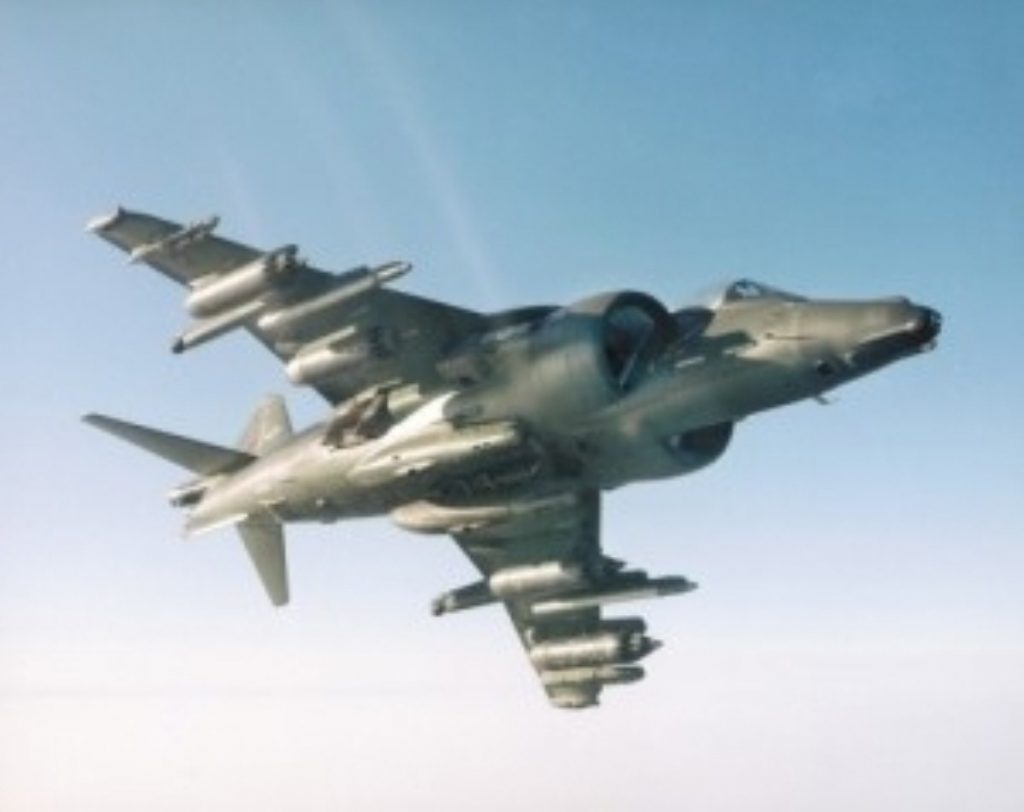Comment: Beware our allies against Isis
By Andrew Smith
With parliament being recalled, MPs are being asked whether or not the UK should join the US and others in air strikes on Iraq.
People from all across the political spectrum have been rightfully horrified by Islamic State's (Isis') brutal and barbaric actions, but air strikes can only serve to make matters worse.
Looking at the results of military action taken by the west in Afghanistan, Iraq and Libya it is clear that such interventions kill civilians, destroy infrastructure and exacerbate violence. Only this month the outgoing Afghan president, Hamid Karzai, said: "We don't have peace because the Americans didn't want peace". Meanwhile, we're seeing the collapse of the UK backed Libyan government, which has gone into hiding.


The rise of Isis should be seen as one of the outcomes of the disastrous 2003 war, which killed half a million Iraqis and displaced many more.
One of the reasons Isis is so well armed and dangerous is because of the short-termism at the heart of UK and US foreign policy. It is well documented that Isis is using weapons that were originally sold to the Iraqi government. Weapons have a long shelf-life and can easily change hands; after looting Iraqi army bases, Isis fighters are reported to have access to US-made Humvees, M1 Abrams tanks and surface-to-air Stinger missiles.
This is not a problem that is unique to Iraq. The Malaysia Airlines Flight 17 tragedy in Ukraine is another terrible demonstration of what can happen when sophisticated weapons systems are introduced into a war zone.
Western policy towards allies in the region such as Qatar, Saudi Arabia and other members of the new 'coalition of the willing' needs greater scrutiny. While there is no suggestion that Saudi Arabia is actually running Isis, it did strongly support the anti-Shia groups which Isis emerged from.
The Saudi regime itself is one of the most repressive in the world. According to Human Rights Watch it beheaded 19 people between August 4th and 20th alone. Unlike the appalling killing of westerners by Isis these equally dreadful deaths did not make the headlines.
However, far from condemning both Saudi Arabia's human rights record and its regional role, David Cameron and royals woo it with arms deals. It remains on the 'priority list' for export promotion of the UK government's arms sales agency, the UK Trade and Investment Defence and Security Organisation.
What should be done?
Humanitarian assistance and support for refugees have to be an immediate imperative. However, in the long term the situation demands a complete reconsideration of foreign policy so that we do not find ourselves in a similar situation yet again.
The issue goes wider than Iraq and Syria. In 2004 the EU arms embargo on Libya was lifted and almost immediately the UK courted Gaddafi for arms sales. In 2010 alone the UK licensed £34 million worth of arms exports, including "small arms ammunition" and "crowd control ammunition". This policy continued right up until the Arab Spring, when Gaddafi used UK exports to fight against the uprising. Despite widespread human rights abuses the arms sales have continued, with almost £9 million of military export licenses having since been approved.

In the UK thought is being given to a new National Security Strategy (NSS) due to be published in 2015. Already a parliamentary committee, seeking to inform the process, is asking questions about the UK's national security priorities for the next twenty years and the UK's place in the world
Security needs to be disassociated from the military approach. The causes of insecurity, such as climate change and competition for resources need to be addressed. However, a vital component of the NSS must be to put human rights at the centre of the UK's foreign policy. This is not, as the parliamentary committees on arms export controls has consistently pointed out, compatible with promoting arms sales.
All too often foreign policy is based on short term political gains rather than long term considerations. The days of supporting and selling arms to repressive regimes, only to end up bombing them, must end.
Andrew Smith is a spokesperson for Campaign Against Arms Trade (CAAT). You can follow CAAT at @wwwcaatorguk.
The opinions in politics.co.uk's Comment and Analysis section are those of the author and are no reflection of the views of the website or its owners.









